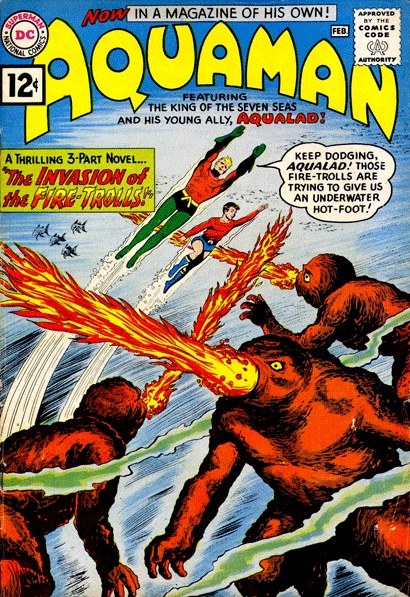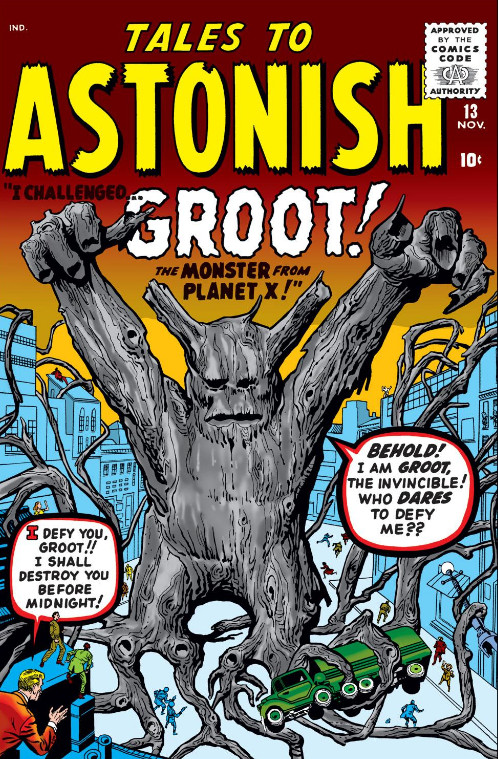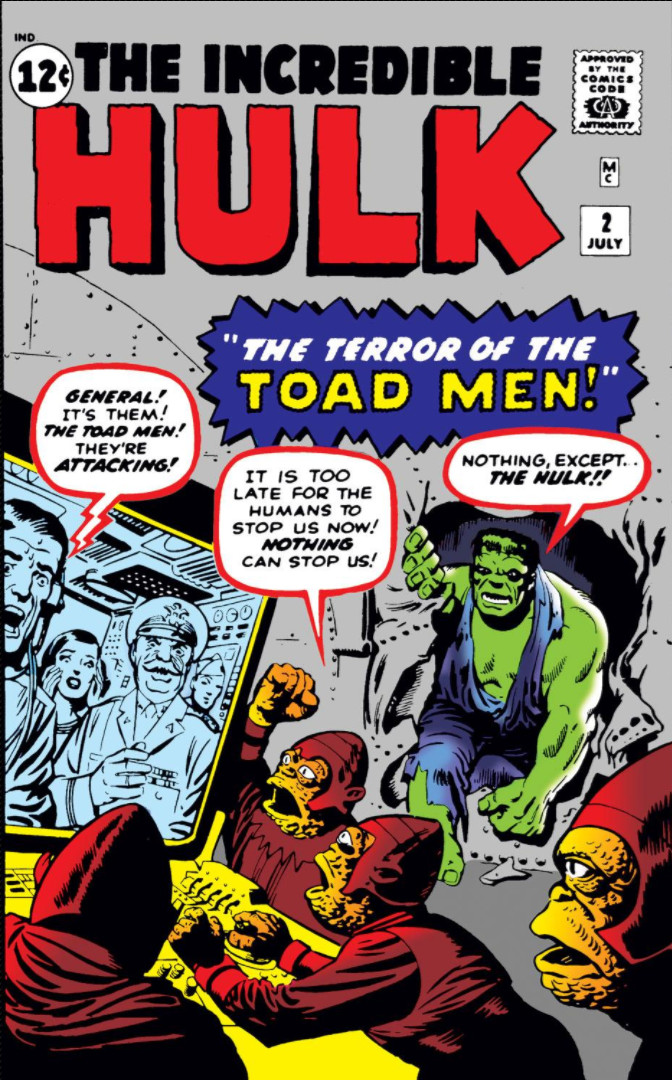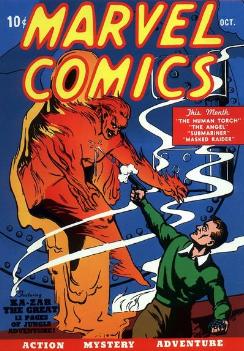Yes, you read the title right. By legally requiring citizens to purchase health insurance, that part of the Obamacare plan turns harmless, innocent people into "criminals", subject to punishment by the law. Isn't it just *wonderful* to be an American citizen? To live in the "land of the free"? Oh sure, there are plenty of countries that are worse to live in than the United States, but I'm not talking about being relatively free. I'm talking about the liberty to do as one wants as long as one is not doing harm to other people. Real freedom, true liberty.
Mandatory national health insurance as Obamacare calls for is a clear and obvious violation of the individual rights and liberties of the citizens of the United States. Have the American people become so cynical and jaded that they cannot see such a simple and obvious point?
Sure, we can say that most Americans already have health insurance of some kind, that only a limited number of Americans are actually being affected by this requirement. We can even say that the penalty is simply a relatively small fine, payable through their income tax returns--it's not like the non-compliers will be rounded up and sent to Guantanamo, or even to their local jail.
Nonetheless, rights are still being violated, however mild the penalty. Furthermore , since the law allows the government to act if someone doesn't comply, the penalty could be changed later, if the government deems it necessary.
Of course, some people will want to be pragmatic, practical. They say that we *have* to do this, in order to bring down health care costs. They will think that the coercion involved is justfied by the results the law brings about.
The problem with this is that there is no reason to believe that it will actually lower health care costs. The use of coercion tends to have unintended consequences. By forcing people to do things that they would not normally do, you are upsetting the equilibrium of the economy. The economy will react to this coercion, and a new equilibrium will be reached, but it is difficult to say exactly what this new equilibrium will be.
Given the complexity of legislation like Obamacare, there are many possible ways for people to react, many possible unusual consequences and undesirable results. People may fraudulently claim to be one of the exceptions to the legal requirement, for example, as they seek a way to meet the legal requirement while still trying to get the services they actually want from the medical community. Medical providers may charge differently, knowing that everyone has, or is supposed to have, health insurance. And since they're being paid by insurance, what the insurance company says becomes more important than what the patient says or wants.
And certainly insurance companies will react to the changes caused by the legislation. The insurance companies will do what the legislation requires, regardless of their customer's wishes or desires. They may have to charge more in order to meet the legal requirements.
Insurance, properly understood, is not merely spreading the risks among a larger pool of people. It involves statistical and actuarial data, and when done right, an insurance company already knows how much they can be expected to pay out in a year, and they charge their premiums to different homogenous groups according to those statistics. If the government steps in and requires insurance companies to treat heterogeneous groups like homogenous groups, or if they require uninsurable people to be insured, this will create a higher degree of risk and uncertainty, not only for the insurance companies, but for their customers.
Insurance companies should be allowed to provide real insurance, and not merely be used by the government as a way of shifting health care costs, which is essentially what mandatory health insurance will result in, causing higher, not lower, health insurance and health care costs for most Americans.
In short, mandatory health insurance is not only morally wrong, but is an impractical way to reduce health care costs and relieve the burdens of American citizens. It will interfere with the market's ability to satisfy consumers, and will increase the difficulty and frustration of getting good health care. And when the results of Obamacare are seen to be undesirable, as they inevitably will be, the government will undoubtedly step in and take more drastic regulatory measures to try to fix it, and thus create a vicious cycle of even more problems with health care in the U.S.
But don't take my word for it. We're all about to live with the consequences of this far-reaching, devastating legislation. And I won't say "I told you so" if you'll wake up to what's wrong with it, and help me try to reclaim our liberty and support individual rights.
3/31/2014
3/24/2014
The Emergence of Marvel Comics and the Silver Age
I was a child of the 1970s, and didn't really get into comics until the summer of 1978, the time of the DC Explosion, quickly followed by the DC Implosion. Nonetheless, while I tried various comics in my early stages, DC, Marvel, Charlton, etc., I tended to prefer the DC comics to the others. This, of course, was before the internet, but I still found out about comics history through back issues, reprints, fanzines and the like. I loved how DC had incorporated the Golden Age characters they had absorbed from other early comics companies into a multiverse. And I hated how DC's Crisis on Infinite Earths in 1985 retroactively erased all that previous multiverse continuity they had developed over the previous twenty or so years.
One of the things that always puzzled me is how Marvel Comics rose to popularity so quickly in the early 1960s. Sure, I had read some reprints of the early Marvel comics, and I already had developed a soft spot for Kirby and Ditko thanks to their work at DC in the 70s, like Omac and Shade, but frankly, the early Marvel stuff just seemed rather crude and undeveloped to me.
Many years later, I've finally had a chance to read more of both Marvel and DC comics from the late 50s and early 60s, and I've discovered some interesting things, including why Marvel's popularity took off the way it did. DC comics had gotten complacent, stultifying, repetitive, and downright boring in the early 60s. They were doing imaginary stories, silly stories, and soap opera stuff with their superheroes. Things like Superman keeping Lois Lane from discovering his secret identity, Batman and Robin having to put up with Bat-Mite, those kinds of things. Frankly, I'm surprised the Aquaman series managed to survive long enough to get better, although it eventually did get better as the 60s went along.
Marvel came along with the Fantastic Four, Spider-Man, The Hulk, Thor, Iron Man, the revived Captain America, etc, and while the stories and art were a bit crude, (Kirby and Ditko had yet to reach their artistic peaks at this point), they were exciting, and full of action, as the heroes went head-to-head against powerful villains, not knowing if they would be able to defeat them. Furthermore, the heroes had more realistic problems that they weren't sure they could overcome, not silly soap-opera problems. The Fantastic Four fought amongs themselves, Spider-Man was a troubled teen wanted by the police, Iron Man had to always worry about his chest-plate and protecting his heart, Bruce Banner couldn't control what he did as the Hulk, and usually couldn't control when he became the Hulk, etc.
Given the context of what was going on at DC, it becomes obvious why Marvel became popular. Not that there weren't *some* bright spots at DC. The new versions of the Flash and Green Lantern were both interesting and enjoyable, and The Doom Patrol were an interesting and unusual superhero group, for example.
Furthermore, the rise of Marvel gave DC a jolt, and throughout the 60s, DC tried different things to keep up with their competition, although what finally worked for DC was simply getting new, younger writers and artists in the late 60s and early 70s. Plus, the Marvel formula was getting overworked and overextended by the late 60s, and the initial excitement they generated just wasn't sustainable.
Another interesting point is how Marvel's, or rather Atlas', monster and alien stories fed into their superhero foray. Atlas? You see, Marvel wasn't really a new company in the early 60's, that was just their latest company name. They were originally Timely Comics back in the 40s, changed to Atlas Comics in the 50s, and became Marvel Comics in the 60s. Stan Lee was no newcomer, either, as he had started with them back when they were Timely, and thus was quite familiar with superheroes.
When Superman appeared in 1938, it started an explosion of superheroes and superhero comics. There were several comic book companies in the 1940s, and they all had their superheroes among their other comics. However, as the 1940s went on, superheroes seemed to be a dying trend. Most superhero titles were cancelled, and the surviving comic book companies continued by publishing various genre comics: westerns, romances, teen, funny animals, crime, horror, etc. It was the crime and horror comics that especially disturbed Dr. Fredric Wertham, and which led to Congressional investigations and the development of the Comics Code Authority, a self-policing group within the comics industry.
Ironically, it may have been thanks to Wertham and the Comics Code that superheroes made a comeback. With the restrictions put upon comics, the crime and horror comics had trouble sustaining their popularity, and a return to superheroes allowed the comics companies to do something interesting and exciting while still staying within the limits of the code. Superheroes could fight supervillains with stylized violence that didn't call for blood and gore. However, DC didn't merely revive the Golden Age versions of Flash and Green Lantern, but created new versions of them. When these did well, DC created the Justice League of America, a new superhero group, instead of trying to revive the Golden Age group Justice Society of America.
It was the popularity of the JLA that led Martin Goodman, publisher at Atlas/Marvel, to ask Stan Lee to come up with a version of the Justice League. Instead, Stan and Jack Kirby created The Fantastic Four, and thus began the Marvel Age of Heroes.
Atlas, like the other publishers of the time, was publishing genre material like westerns, romance, and humor comics. But because of Wertham and the Comics Code Authority, they had switched from doing straight horror and crime stories to stories mostly involving monsters and aliens. They did a LOT of monster and alien stories. So when Goodman wanted them to switch to superheroes, it was like they carried that monster and alien sensibility over to their superhero stories.
The early Fanstastic Four shows this monster and alien sensibility. The Fantastic Four were less like the Justice League and more like the Challengers of the Unknown, a title Jack Kirby had created for DC a few years before, but the FF had superpowers, whereas the Challengers were ordinary humans. The FF's earliest foes were monsters and aliens; one of their members, the Thing, was for all intents and purposes, a monster, although he fought against bad guys. They didn't even have costumes until the third issue.
This monster and alien sensibility wasn't so strongly felt in other titles, but it was there. Spider-Man runs into his share of monsters and aliens, too. Thor's first Marvel appearance involved an alien invasion. The Hulk was himself a monster, moreso than the Thing, because you couldn't be sure if he would do good or evil. And even the Hulk encountered aliens early in his publishing history.
But eventually, Marvel developed a more superhero sensibility, although monsters and aliens never completely left. Once they had established enough superheroes, they even came up with their own version of the Justice League with the Avengers title.
But I still consider myself more of a DC fan than a Marvel Fan. Sorry Stan!
 |
| The first meeting of the Silver Age Flash and the Golden Age Flash in 1961--the beginning of the DC multiverse. |
One of the things that always puzzled me is how Marvel Comics rose to popularity so quickly in the early 1960s. Sure, I had read some reprints of the early Marvel comics, and I already had developed a soft spot for Kirby and Ditko thanks to their work at DC in the 70s, like Omac and Shade, but frankly, the early Marvel stuff just seemed rather crude and undeveloped to me.
 |
| Jack Kirby's Omac. One of my favorite comic series |
 | |
| Steve Ditko's Shade. Another of my favorite comic series |
 |
| Aquaman #1 from 1962. "Thrilling" is not a word that I would use for the story. |
Marvel came along with the Fantastic Four, Spider-Man, The Hulk, Thor, Iron Man, the revived Captain America, etc, and while the stories and art were a bit crude, (Kirby and Ditko had yet to reach their artistic peaks at this point), they were exciting, and full of action, as the heroes went head-to-head against powerful villains, not knowing if they would be able to defeat them. Furthermore, the heroes had more realistic problems that they weren't sure they could overcome, not silly soap-opera problems. The Fantastic Four fought amongs themselves, Spider-Man was a troubled teen wanted by the police, Iron Man had to always worry about his chest-plate and protecting his heart, Bruce Banner couldn't control what he did as the Hulk, and usually couldn't control when he became the Hulk, etc.
Given the context of what was going on at DC, it becomes obvious why Marvel became popular. Not that there weren't *some* bright spots at DC. The new versions of the Flash and Green Lantern were both interesting and enjoyable, and The Doom Patrol were an interesting and unusual superhero group, for example.
 |
| My Greatest Adventure #80 (1963) - Introducing The Doom Patrol, the World's Strangest Heroes. |
Furthermore, the rise of Marvel gave DC a jolt, and throughout the 60s, DC tried different things to keep up with their competition, although what finally worked for DC was simply getting new, younger writers and artists in the late 60s and early 70s. Plus, the Marvel formula was getting overworked and overextended by the late 60s, and the initial excitement they generated just wasn't sustainable.
Another interesting point is how Marvel's, or rather Atlas', monster and alien stories fed into their superhero foray. Atlas? You see, Marvel wasn't really a new company in the early 60's, that was just their latest company name. They were originally Timely Comics back in the 40s, changed to Atlas Comics in the 50s, and became Marvel Comics in the 60s. Stan Lee was no newcomer, either, as he had started with them back when they were Timely, and thus was quite familiar with superheroes.
When Superman appeared in 1938, it started an explosion of superheroes and superhero comics. There were several comic book companies in the 1940s, and they all had their superheroes among their other comics. However, as the 1940s went on, superheroes seemed to be a dying trend. Most superhero titles were cancelled, and the surviving comic book companies continued by publishing various genre comics: westerns, romances, teen, funny animals, crime, horror, etc. It was the crime and horror comics that especially disturbed Dr. Fredric Wertham, and which led to Congressional investigations and the development of the Comics Code Authority, a self-policing group within the comics industry.
 |
| Strange Tales #28 from 1954 - An especially scary cover pre-Comics Code Authority. Notice the Atlas logo. |
Ironically, it may have been thanks to Wertham and the Comics Code that superheroes made a comeback. With the restrictions put upon comics, the crime and horror comics had trouble sustaining their popularity, and a return to superheroes allowed the comics companies to do something interesting and exciting while still staying within the limits of the code. Superheroes could fight supervillains with stylized violence that didn't call for blood and gore. However, DC didn't merely revive the Golden Age versions of Flash and Green Lantern, but created new versions of them. When these did well, DC created the Justice League of America, a new superhero group, instead of trying to revive the Golden Age group Justice Society of America.
 |
| The first appearance of the JLA in The Brave and the Bold #28 (1960). Superman and Batman were also part of the team, but de-emphasized for some reason. |
It was the popularity of the JLA that led Martin Goodman, publisher at Atlas/Marvel, to ask Stan Lee to come up with a version of the Justice League. Instead, Stan and Jack Kirby created The Fantastic Four, and thus began the Marvel Age of Heroes.
Atlas, like the other publishers of the time, was publishing genre material like westerns, romance, and humor comics. But because of Wertham and the Comics Code Authority, they had switched from doing straight horror and crime stories to stories mostly involving monsters and aliens. They did a LOT of monster and alien stories. So when Goodman wanted them to switch to superheroes, it was like they carried that monster and alien sensibility over to their superhero stories.
 |
| An early Tales to Astonish issue, Groot is both a monster and an alien! But still approved by the Comics Code Authority. |
The early Fanstastic Four shows this monster and alien sensibility. The Fantastic Four were less like the Justice League and more like the Challengers of the Unknown, a title Jack Kirby had created for DC a few years before, but the FF had superpowers, whereas the Challengers were ordinary humans. The FF's earliest foes were monsters and aliens; one of their members, the Thing, was for all intents and purposes, a monster, although he fought against bad guys. They didn't even have costumes until the third issue.
 |
| Fantastic Four #1 - No costumes as they fight a monster from the underground. |
This monster and alien sensibility wasn't so strongly felt in other titles, but it was there. Spider-Man runs into his share of monsters and aliens, too. Thor's first Marvel appearance involved an alien invasion. The Hulk was himself a monster, moreso than the Thing, because you couldn't be sure if he would do good or evil. And even the Hulk encountered aliens early in his publishing history.
 |
| The Hulk fights the alien Toad Men in his second issue, 1962. |
But eventually, Marvel developed a more superhero sensibility, although monsters and aliens never completely left. Once they had established enough superheroes, they even came up with their own version of the Justice League with the Avengers title.
 |
| Avengers #1 - Okay, they're fighting Loki, a Norse God, but technically he's still an alien to Earth! |
But I still consider myself more of a DC fan than a Marvel Fan. Sorry Stan!
Labels:
aliens,
Aquaman,
Avengers,
comic books,
Comics Code Authority,
DC,
Ditko,
Fantastic Four,
Justice League of America,
Kirby,
Marvel,
Marvel Age,
monsters,
Multiverse,
Silver age,
superheroes,
Wertham
3/16/2014
A Matter of Perspective
I found a great deal at the local dollar store. I found a package of chip bag clips for a dollar. Fifty of them in the package! For a dollar! Wow!
The only thing I can't understand is why they called them "wooden clothespins"...Ha!
But seriously, I've tried those plastic chip bag clips, and while they're colorful, they're just not as strong as the even cheaper wooden clothespins, nor do they last as long. The plastic ones tend to break too easily.
Furthermore, I use clothespins clipping all sorts of bags, and occasionally find other uses for them. One use I *don't* have for clothespins is hanging wet clothes on a clothesline. I can't recall ever using clothespins for their designed purpose, and I know few people who don't use an electric dryer to dry their clothes.
Even when my dryer was broken, I'd just hang my clothes over doors, chairs, shower curtain rods, and other places, and still didn't need clothespins.
So how about you? Do you have things that you put to uses other than their intended use? I bet you do.
The only thing I can't understand is why they called them "wooden clothespins"...Ha!
 |
| The clothespin with a 101 uses. |
But seriously, I've tried those plastic chip bag clips, and while they're colorful, they're just not as strong as the even cheaper wooden clothespins, nor do they last as long. The plastic ones tend to break too easily.
 | |
| The cheap, plastic, breakable Chip Clip. |
Furthermore, I use clothespins clipping all sorts of bags, and occasionally find other uses for them. One use I *don't* have for clothespins is hanging wet clothes on a clothesline. I can't recall ever using clothespins for their designed purpose, and I know few people who don't use an electric dryer to dry their clothes.
Even when my dryer was broken, I'd just hang my clothes over doors, chairs, shower curtain rods, and other places, and still didn't need clothespins.
 |
| These are not the clothespins I am talking about. |
So how about you? Do you have things that you put to uses other than their intended use? I bet you do.
Subscribe to:
Comments (Atom)
